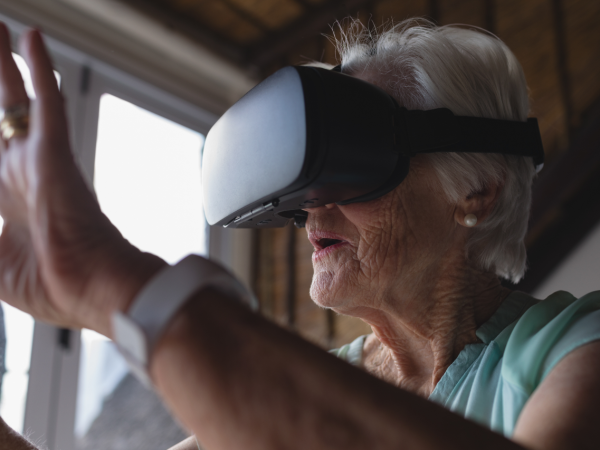
Image Credit: Source: Adobe Stock; Copyright: wavebreak3; License: Licensed by JMIR
It detailed how more and more biomedical research studies are focusing on virtual reality (VR) balance training, particularly with respect to examining balance ability with VR.
However, current systematic studies have discovered conflicting results on the effectiveness of VR in restoring balance in Parkinson’s disease patients (PD).
The study’s objective was to assess how VR balance training affected the patients’ ability to balance. The methodological quality evaluation score, which ranged from 5 to 8, was examined for a total of 16 randomized controlled trials.
After receiving VR training, PD’s ability to balance considerably improved in comparison to the control group (standardized mean difference 2.127, 95% CI 1.202-3.052, P<.001), according to the meta-analysis.
Parkinson disease (PD) is the most common neurodegenerative movement disorder and is the result of impaired dopamine-producing nerve cells in the ventral midbrain accompanied by progressive neuronal loss.
Dr. Zhanbing Ren, Shenzhen University
Human-computer interface (HCI) technology based on perception is used in virtual reality (VR) to give patients rich, multimodal stimulation, enhance the sensation of immersion, and realize real-time feedback on physical activities.
The repeatability of virtual tasks, encouraging feedback from virtual equipment, and realistic reproduction of a virtual world are the major potential mechanisms of VR treatment. As a result, VR technology could be a useful tool for treating neurodegenerative conditions like Parkinson’s disease.
The virtual environment produced by the VR technology can encourage the illusion of physical movement, increase immersion to enhance the activation of motor brain regions, mobilize changes in brain neural plasticity, reconstruct the synapses of nervous system cells, and directly train the central nervous system.
All of this will have a significant positive impact on nerve structure recovery and reorganization in PD and other neurodegenerative diseases.
Moreover, there are insufficient randomized controlled trial sample sizes at present to assess the dose effect of VR technology training on enhancing PD balance.
Dr. Ren and the team concluded, “The systematic review and meta-analysis confirmed that VR balance training is a highly effective means to improve balance performance with large effects in PD. In addition, we preliminarily extracted dose-effect relationships for training volume, informing clinicians and practitioners to design effective VR balance training for balance ability.”
They further stated, “Future studies should particularly focus on the detailed description of training variables, so as to further analyze the dose-effect relationship of VR balance training in PD.”
Journal Reference:
Wu, J., et al. (2022) Benefits of Virtual Reality Balance Training for Patients With Parkinson Disease: Systematic Review, Meta-analysis, and Meta-Regression of a Randomized Controlled Trial. JMIR Serious Games. doi:10.2196/30882.